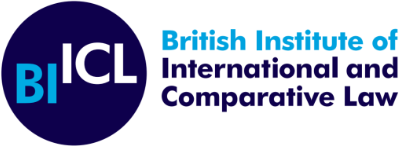
1. Causes of Action
D. Company and Financial Laws
3. RELEVANT DEFINITIONS AND ESSENTIAL ELEMENTS
Essential elements in bringing climate cases based on company and financial laws include using existing legal frameworks to establish corporate accountability. These frameworks range from provisions in company laws addressing inadequate disclosure of climate-related financial risks, directors' fiduciary duties and liabilities, and shareholder activism. Specific laws, such as the tax laws in Nigeria and the corporation code in the Philippines, play a unique and crucial role in establishing corporate liabilities.
Provisions in company and sustainability reporting laws addressing inadequate or inaccurate disclosure of climate-related financial risks: these are regulations within company laws that require companies to disclose information related to the financial risks and mitigation actions associated with climate change. Such provisions aim to ensure transparency and accountability regarding a company's exposure to climate-related risks, enabling investors and stakeholders to make informed decisions.
Directors' Fiduciary Duties and Liabilities: Fiduciary duties refer to the legal obligations of directors to act in the best interests of the company and its stakeholders. In the context of climate litigation, directors may be held accountable for failing to adequately identify, understand, address and mitigate climate-related risks, making decisions that harm the company's long-term sustainability, or failing to take advice and/or consider such advice seriously. Directors' liabilities pertain to the legal responsibility they bear for breaches of their fiduciary duties. A possible area which could be subject to increased attention is whether shareholders can hold directors personally liable for the pure economic loss suffered through a diminution of share value when such loss is attributable to a breach of fiduciary duties in connection with climate-related risks. While some jurisdictions only know an internal directors' liability, which can only be enforced by the company acting through other directors or a supervisory board, others provide for an external directors' liability towards third parties or towards the shareholders.
Shareholder Activism: Shareholder activism involves shareholders using their ownership stake in a company to advocate for specific changes in corporate behaviour, policies, or practices. In the context of climate litigation, shareholder activism may include actions such as filing resolutions, engaging in dialogue with company management, or initiating legal proceedings to hold the company accountable for its environmental impact and climate-related risks, also to narrow the scope of the business judgment rule.
In addition to understanding these overarching legal frameworks, there are various essential elements for the kinds of causes of actions related to company and financial laws. For example, when considering cases based on directors' fiduciary duties, there are typically four to five characteristics that might be found in every legal system. These characteristics could include the duty of care, duty of loyalty, duty to act on an informed basis, duty to act with skill and duty of disclosure.
Generally, directors are shielded from legal responsibility for making honest business mistakes under the business judgment rule. In retrospect, courts typically refrain from reassessing the substance of a board of directors' business decision, enabling directors to carry out their duties without the apprehension of legal action impeding their ability to take action. In the event that the business judgment rule is effectively invoked, a court will refrain from questioning the rationale, result, or impact of the corporate decision under consideration. The presumption of business judgment is often regarded as a rebuttable presumption that may be invoked as a defence to a claim of breach of fiduciary duty.
The essential elements for the various kinds of causes of actions regarding shareholder activism that might be found across legal systems include, for example, disclosure requirements and shareholder voting rights and procedures, and procedural rules for shareholder resolutions. Understanding these elements can help readers better comprehend the legal avenues available within their respective legal systems.
